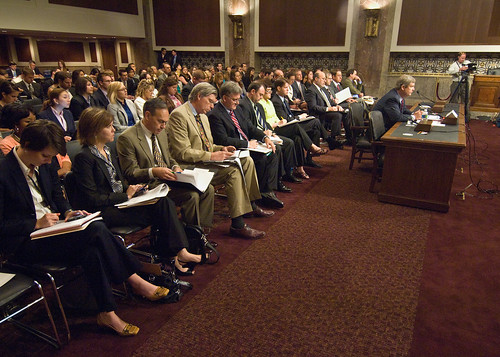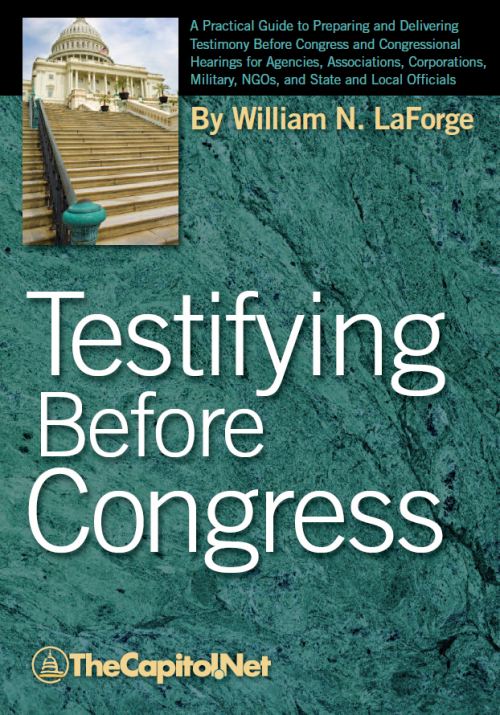Each year hundreds of hearings are conducted on every topic imaginable by the United States Congress. Possible topics include regulation of business and industry, public policy, governmental operations, and much more. Although testifying at a hearing can be intimidating, hearings serve an important part of the congressional process; providing information to Congress for carrying out its responsibilities. A wide variety of witnesses are called each year to testify before congressional committees regarding critical issues. Through these hearings Congress is able to delve into practically every facet of life in America.

If you should ever find yourself called to testify before Congress, the process will involve a number of different activities including creating written testimony, delivering oral testimony, and answering questions posed by the committee.
There are three basic elements that form the essentials of a congressional hearing in which testimony is given. First, there must be a witness or someone who appears before the committee to provide testimony as a knowledgeable source or expert. Second, there must be testimony. Testimony refers to either oral or written statements that are presented to the committee by a witness for the purpose of providing information about an issue involving policy. Finally, there is the congressional committee; a panel comprised of congressional committee members who are responsible for conducting the hearing, receiving testimony and questioning witnesses.
Congressional committees have a variety of responsibilities: reviewing proposal for legislation, considering bills that fall under their jurisdiction, conducting and developing research for decision making, producing and advancing legislative proposals, and approving, reporting and recommending legislation for consideration.
The hearings process is often used by committees for the purpose of obtaining relevant information and developing a body of reliable information, particularly when a committee conducts research on issues they are reviewing. The agenda of a committee and a committee hearing frequently revolves around accomplishing these objectives. 
Due to the fact that Congress and its committees rely on critical information to carry out its legislative, institutional and oversight responsibilities, both oral and written testimony is essential to the overall process. As a witness, your testimony must be prepared in a thoughtful and effective manner. Learn more about testifying in our Preparing and Delivering Congressional Testimony workshop.
Reference: Testifying Before Congress, by William LaForge, Section 1.0 Introduction and Overview.
More
For more than 40 years, TheCapitol.Net and its predecessor, Congressional Quarterly Executive Conferences, have been teaching professionals from government, military, business, and NGOs about the dynamics and operations of the legislative and executive branches and how to work with them.
Our custom on-site and online training, publications, and audio courses include congressional operations, legislative and budget process, communication and advocacy, media and public relations, testifying before Congress, research skills, legislative drafting, critical thinking and writing, and more.
TheCapitol.Net is on the GSA Schedule, MAS, for custom on-site and online training. GSA Contract GS02F0192X
TheCapitol.Net is now owned by the Sunwater Institute.
Teaching how Washington and Congress work ™

